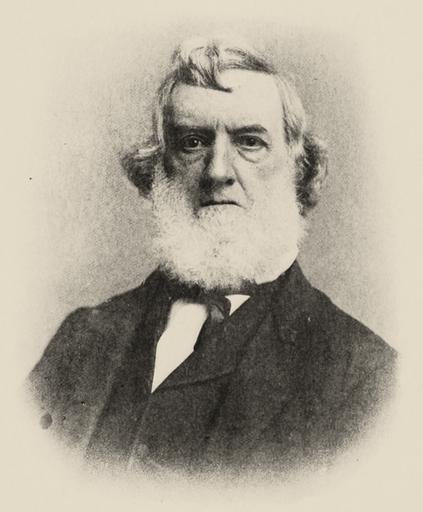MAKE A MEME
View Large Image

| View Original: | Gideon_Wells.png (800x969) | |||
| Download: | Original | Medium | Small | Thumb |
| Courtesy of: | www.flickr.com | More Like This | ||
| Keywords: people portrait monochrome surreal drawing sketch cartoon Gideon Welles (July 1, 1802 – February 11, 1878) was the United States Secretary of the Navy from 1861 to 1869, a cabinet post he was given after supporting Lincoln in the 1860 election. Although opposed to the Union blockade of Southern ports, he duly carried out his part of the Anaconda Plan, largely sealing-off the Confederate coastline and preventing the exchange of cotton for war supplies. This is viewed as a major cause of Union victory in the Civil War, and his achievement in expanding the Navy almost tenfold was widely praised. Welles was also instrumental in the Navy's creation of the Medal of Honor. Welles found the Naval Department in disarray, with Southern officers resigning en masse. His first major action was to dispatch the Navy's most powerful warship, the USS Powhatan, to relieve Fort Sumter on Lincoln's instructions. Unfortunately, Secretary of State Seward had just ordered the Powhatan to Fort Pickens, Florida on his own authority, ruining whatever chance Major Robert Anderson had of withstanding the assault. Several weeks later, when Seward argued for a blockade of Southern ports, Welles argued vociferously against the action but was eventually overruled by Lincoln. Despite his misgivings, Welles' efforts to rebuild the Navy and implement the blockade proved extraordinarily effective. From 76 ships and 7,600 sailors in 1861, the Navy expanded almost tenfold by 1865. His implementation of the Naval portion of the Anaconda Plan strongly weakened the Confederacy's ability to finance the war by limiting the cotton trade, and while never completely effective in sealing off all 3,500 miles of Southern coastline, it was a major contribution towards Northern victory. Lincoln nicknamed Welles his "Neptune." Despite his successes, Welles was never at ease in the Cabinet. His anti-English sentiments caused him to clash with Seward, and Welles's conservative stances led to arguments with Treasury Secretary Salmon P. Chase and War Secretary Edwin M. Stanton. Read more about Gideon Wells. (Wikipedia) Gideon Welles (July 1, 1802 – February 11, 1878) was the United States Secretary of the Navy from 1861 to 1869, a cabinet post he was given after supporting Lincoln in the 1860 election. Although opposed to the Union blockade of Southern ports, he duly carried out his part of the Anaconda Plan, largely sealing-off the Confederate coastline and preventing the exchange of cotton for war supplies. This is viewed as a major cause of Union victory in the Civil War, and his achievement in expanding the Navy almost tenfold was widely praised. Welles was also instrumental in the Navy's creation of the Medal of Honor. Welles found the Naval Department in disarray, with Southern officers resigning en masse. His first major action was to dispatch the Navy's most powerful warship, the USS Powhatan, to relieve Fort Sumter on Lincoln's instructions. Unfortunately, Secretary of State Seward had just ordered the Powhatan to Fort Pickens, Florida on his own authority, ruining whatever chance Major Robert Anderson had of withstanding the assault. Several weeks later, when Seward argued for a blockade of Southern ports, Welles argued vociferously against the action but was eventually overruled by Lincoln. Despite his misgivings, Welles' efforts to rebuild the Navy and implement the blockade proved extraordinarily effective. From 76 ships and 7,600 sailors in 1861, the Navy expanded almost tenfold by 1865. His implementation of the Naval portion of the Anaconda Plan strongly weakened the Confederacy's ability to finance the war by limiting the cotton trade, and while never completely effective in sealing off all 3,500 miles of Southern coastline, it was a major contribution towards Northern victory. Lincoln nicknamed Welles his "Neptune." Despite his successes, Welles was never at ease in the Cabinet. His anti-English sentiments caused him to clash with Seward, and Welles's conservative stances led to arguments with Treasury Secretary Salmon P. Chase and War Secretary Edwin M. Stanton. Read more about Gideon Wells. (Wikipedia) | ||||